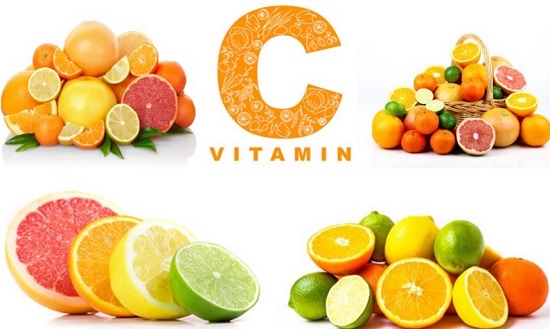Vitamin C is a water-soluble vitamin, also known as ascorbic acid. The human body cannot synthesize vitamin C, but it is naturally available in some foods, such as vegetables and fruits, and is also available as a dietary supplement.
vitamin C is a physiological antioxidant and a vital nutrient for health, as it helps the body maintain connective tissues including bones, skin, and blood vessels, and has a role in many important and vital functions in the body.
Benefits of Vitamin C
The most important benefits of vitamin C include:
1.It plays a key role in the manufacture of certain neurotransmitters and collagen, and therefore has a vital role in wound healing and healing.
2.Participates in protein metabolism.
3.It plays an active role in immune function.
4.Improves the absorption of iron contained in plant foods.
5.Contributes to the reduction of total cholesterol, bad cholesterol and triglycerides.
6.It prevents the formation of free radicals that cause damage to cells and convert them from normal cells to cancer cells, so one of the benefits of vitamin C is to reduce the risk of stomach, colon, and bowel cancer.
7.Vitamin C plays an important role in bone formation, as it is involved in the synthesis of collagen, which is the basis for bone formation, so normal levels of vitamin C are associated with good bone health.
8.It contributes to the formation and maturation of nerves, and helps speed the transmission of nerve signals.
9.Vitamin C helps in the process of weight loss and lowering body mass index, as vitamin C oxidizes body fat during moderate-intensity exercise. A person may have difficulty losing fat if they are vitamin C deficient.
10.It helps delay or prevent cataracts known as cataracts in the eye.
11.It helps prevent or delay the development of certain cancers, cardiovascular diseases and other diseases, but more studies and research are still needed on this relationship.
Sources of Vitamin C

Fresh fruits and vegetables are the best sources of vitamin C, and it is preferable not to expose natural sources of vitamin C to heat and cooking in water, as this can destroy a proportion of the amount of vitamin C in these foods.
Types of fruits that contain vitamin C include:
Citrus fruits and juices, such as oranges, lemons and grapefruits.
Kiwi fruit.
Melon and watermelon.
Mango.
Papaya.
Pineapple
Strawberry.
Cranberries.
Types of vegetables that contain vitamin C include:
Broccoli.
Cauliflower and Brussels sprouts.
Green and red peppers.
Spinach, cabbage, kale, and other leafy greens.
Sweet and white potatoes.
Tomatoes and tomato juice.
Green peas.
Vitamin C deficiency
Vitamin C deficiency causes some symptoms
Fatigue and general weakness.
Muscle fatigue.
Joint pain.
Immunodeficiency and recurrence of infection.
Scurvy, a disease caused by severe vitamin C deficiency, symptoms include fatigue, weakening of connective tissue, and fragility of capillaries.
Risks of taking too much vitamin C
A healthy body can consume 200-250 milligrams per day of vitamin C, and excess amounts of vitamin C are excreted out of the body through urine, as it is one of the water-soluble vitamins.
However, taking high amounts of vitamin C can lead to some risks.
1.Diarrhea, nausea, abdominal cramps and other gastrointestinal symptoms.
2.Formation of kidney stones, especially at high doses of vitamin C of up to 2,000 mg per day or more.
3.Excessive iron absorption, and prolonged high doses of vitamin C can exacerbate iron overload, which can cause tissue damage.
Read more about benefits of vitamin b12.
